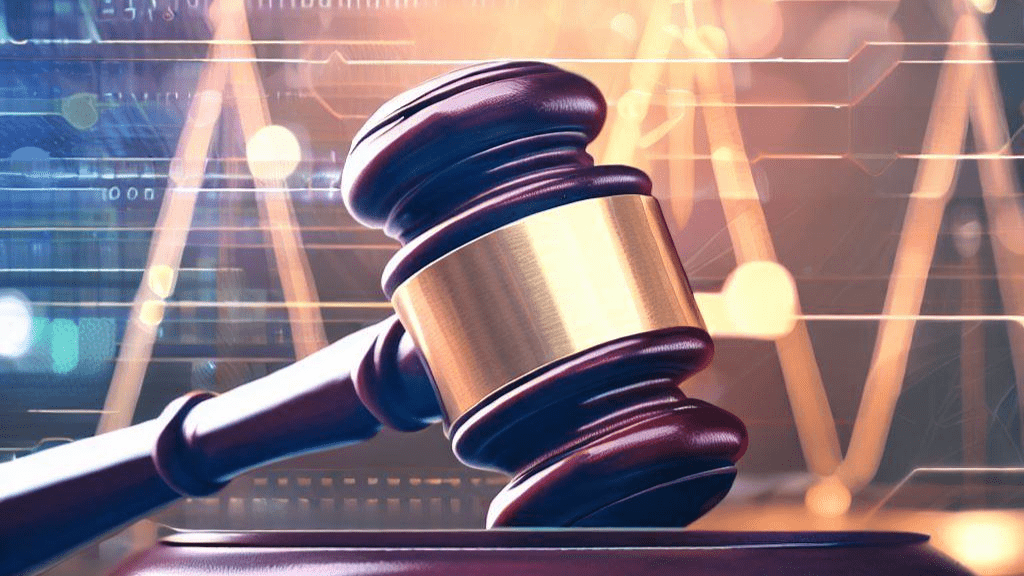
In a daring and defiant move that is making waves across the cryptocurrency industry, Coinbase, one of the most prominent cryptocurrency exchanges based in San Francisco, has decided to push back against the U.S. Securities and Exchange Commission (SEC) by seeking to have the lawsuit filed against it dismissed. The battle lines have been drawn, and Coinbase is challenging the SEC’s jurisdiction and regulatory authority, citing the recent Ripple case verdict as a pivotal point in their argument.
In a legal maneuver that could potentially reshape the regulatory landscape for the entire crypto sector, Coinbase filed an official court document on August 4, boldly stating that the SEC’s claims should be thrown out due to what they perceive as an overreach of the agency’s authority. This audacious move by Coinbase highlights their belief that the subject matter at hand falls beyond the SEC’s delegated powers.
Coinbase’s legal team, comprised of adept legal experts, have formally requested the court to dismiss the SEC lawsuit, accusing the regulatory body of exceeding its regulatory boundaries and indulging in what they term as “regulatory overreach.” This escalation in Coinbase’s stance against the SEC’s lawsuit signifies a determined effort to protect their interests and challenge what they perceive as an undue extension of regulatory power.
The SEC’s lawsuit, initiated in June, had accused Coinbase of operating as an unlicensed securities exchange for an extended period. The agency even went a step further by pointing out 13 tokens that, in their view, could be categorized as securities. Coinbase’s response? A resounding and uncompromising assertion that none of the services or digital assets offered by the exchange should be classified as securities. Their rationale is clear: if none of these assets qualify as securities in the first place, then the lawsuit itself should be dismissed.
Coinbase’s legal defense, laid out meticulously in their court filing, makes a compelling argument that the transactions conducted on their platform and Prime service are not binding agreements designed to yield future value tied to a business’s income, profits, or assets. Instead, they characterize these transactions as straightforward commodity sales, where both parties fulfill their obligations the moment a digital token is exchanged for payment.
Underpinning Coinbase’s stance is their assertion that the SEC’s actions have overstepped due process, displayed regulatory bias, and contradicted its own prior interpretations of securities laws. Coinbase contends that the SEC’s claims against their staking program lack legal foundation. The company contends that the regulatory body’s enforcement measures amount to a punitive overreach, surpassing the authority granted by Congress.
Crucially, Coinbase’s strategy in seeking dismissal draws a parallel to the recent Ripple vs. SEC case, which concluded in the previous month. By referencing the Ripple case, where the court ruled that Ripple’s sales of XRP on exchanges were not securities transactions, Coinbase aims to leverage the ripple effect of this verdict in their own favor. This strategic alignment underscores the significance of the Ripple case as a benchmark for determining the classification of cryptocurrency assets.
In a year marked by intensified SEC scrutiny over the cryptocurrency realm, under the leadership of Chairman Gary Gensler, Coinbase’s stance signals a bold challenge to the regulatory status quo. Gensler’s belief that many crypto platforms are peddling unregistered securities has ignited a wave of legal proceedings against various industry entities, including Coinbase, Binance, Kraken, and Genesis, as well as notable industry figures.
As Coinbase squares off against the SEC, the outcome of this legal confrontation could set a precedent with far-reaching implications for the entire cryptocurrency industry. The clash of legal titans is underway, and the outcome will shape the boundaries of regulatory authority in the crypto landscape for years to come.

Get the latest Crypto & Blockchain News in your inbox.